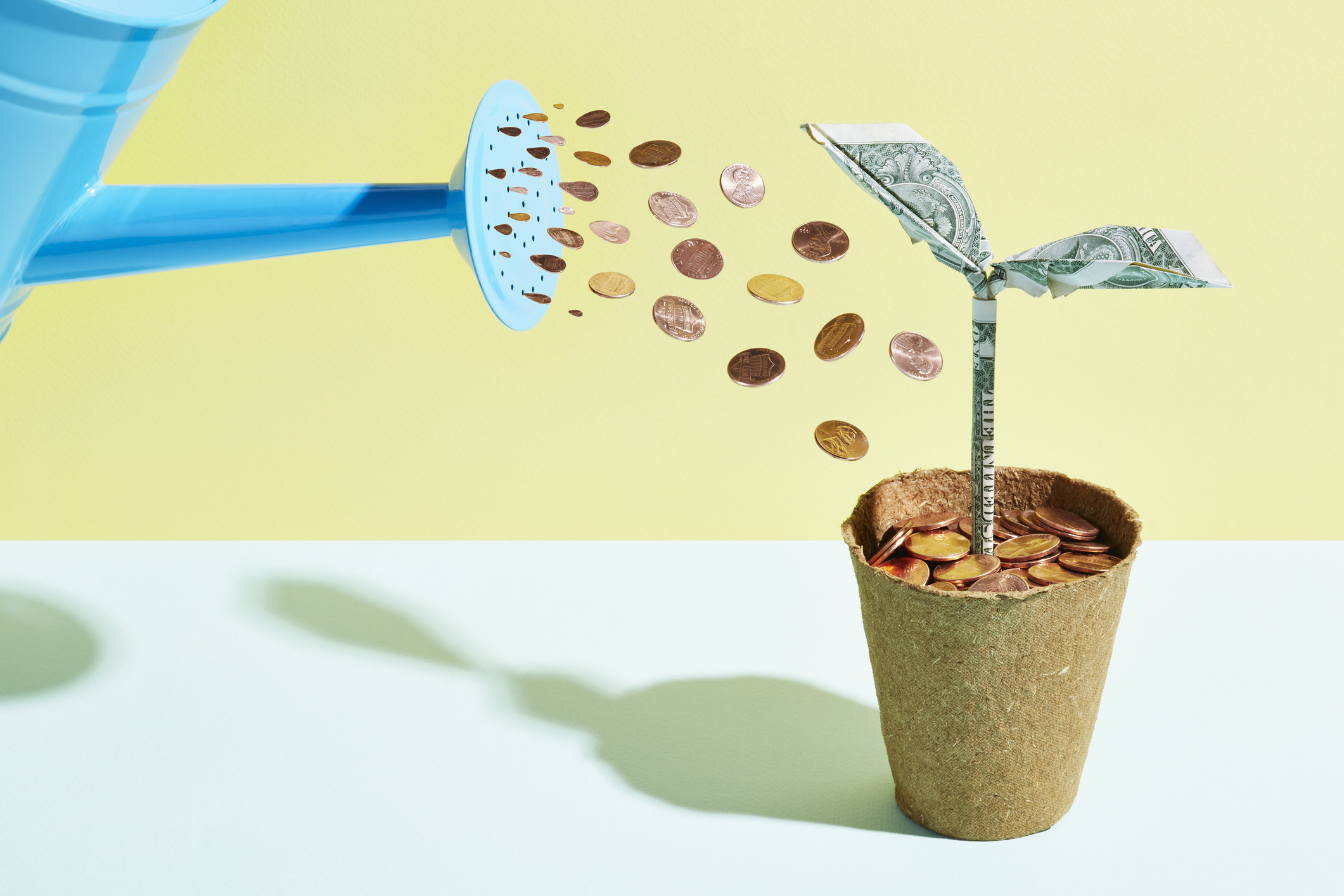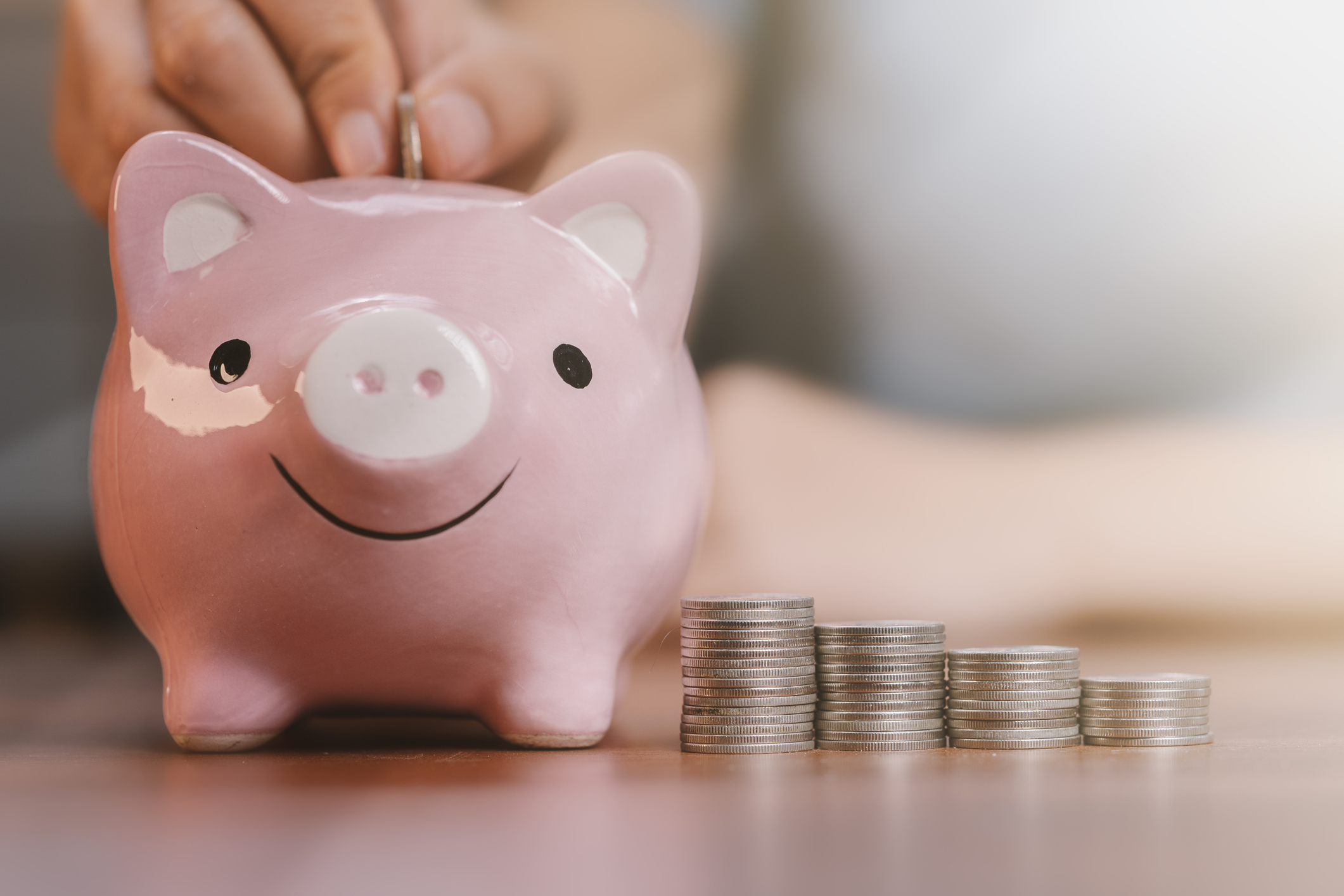Is It Worth Getting a High-Yield Savings Account Before the Fed Meeting?
Even with rate cuts, some savings accounts can help you earn a rate that outpaces inflation and reaches your goals quickly.

Profit and prosper with the best of Kiplinger's advice on investing, taxes, retirement, personal finance and much more. Delivered daily. Enter your email in the box and click Sign Me Up.
You are now subscribed
Your newsletter sign-up was successful
Want to add more newsletters?

Delivered daily
Kiplinger Today
Profit and prosper with the best of Kiplinger's advice on investing, taxes, retirement, personal finance and much more delivered daily. Smart money moves start here.

Sent five days a week
Kiplinger A Step Ahead
Get practical help to make better financial decisions in your everyday life, from spending to savings on top deals.

Delivered daily
Kiplinger Closing Bell
Get today's biggest financial and investing headlines delivered to your inbox every day the U.S. stock market is open.

Sent twice a week
Kiplinger Adviser Intel
Financial pros across the country share best practices and fresh tactics to preserve and grow your wealth.

Delivered weekly
Kiplinger Tax Tips
Trim your federal and state tax bills with practical tax-planning and tax-cutting strategies.

Sent twice a week
Kiplinger Retirement Tips
Your twice-a-week guide to planning and enjoying a financially secure and richly rewarding retirement

Sent bimonthly.
Kiplinger Adviser Angle
Insights for advisers, wealth managers and other financial professionals.

Sent twice a week
Kiplinger Investing Weekly
Your twice-a-week roundup of promising stocks, funds, companies and industries you should consider, ones you should avoid, and why.

Sent weekly for six weeks
Kiplinger Invest for Retirement
Your step-by-step six-part series on how to invest for retirement, from devising a successful strategy to exactly which investments to choose.

The Federal Reserve meets on January 27-28. Unlike the previous three meetings where they issued rate cuts, CME Group FedWatch projects a 95% chance the Fed won't cut rates this time around.
When the Fed cuts rates, it impacts savers by way of lower APYs. However, it can take weeks to months for banks to lower rates, and even with a minor reduction, high-yield savings accounts will still earn a rate surpassing inflation.
With this in mind, here's why we still recommend a HYSA in the interim. We also present another risk-free savings option that'll help you maximize returns.
From just $107.88 $24.99 for Kiplinger Personal Finance
Become a smarter, better informed investor. Subscribe from just $107.88 $24.99, plus get up to 4 Special Issues

Sign up for Kiplinger’s Free Newsletters
Profit and prosper with the best of expert advice on investing, taxes, retirement, personal finance and more - straight to your e-mail.
Profit and prosper with the best of expert advice - straight to your e-mail.
Why it’s worth getting a high-yield savings account before the next Fed meeting

While opening a high-yield savings account before the next Fed meeting won’t lock in current rates, as the APY on these accounts fluctuates with the market, it’s still worth it to open one.
Why? Because the rates are still high. Our top choice, Newtek Bank, offers a 4.35% APY with no account minimums or fees. It's a great way to build an emergency savings, or for established savers to set aside money to meet short-term savings goals. Best of all, the account doesn't come laden with fees to impede savings growth.
Along with Newtek, you can compare rates on high-yield accounts by using the tool below, powered by Bankrate:
Before opening a high-yield account, keep in mind the following:
- High-yield savings accounts have fixed interest rates, so if the Fed decides to cut rates again, it can lower your APY
- Find a bank offering FDIC or NCUA-insurance (for credit union members), as it'll protect your deposits up to $250,000 per person
- Keep your money in a separate savings account so it's more difficult to access, reducing impulse purchases and allowing your savings to grow
When to consider a CD account

Unlike high-yield savings accounts, CD accounts offer a fixed APY. This means that if rates go down after you've opened a CD, your earnings won't be affected.
If you're concerned about earning a lower rate of return, then it's wise to consider this over a high-yield savings account. You can shop and find the best CD term for your needs, using this tool powered by Bankrate:
While opening a CD account can be a smart way to take advantage of high rates for as long as possible, there's one caveat: You'll need to make sure you don't make any withdrawals before the CD matures. Doing so will result in fees that can offset any interest earned (unless you have a no-penalty CD account).
One other thing to keep in mind is that many banks autorenew CDs. Set a reminder on your phone a week before its maturity, as it gives you time to explore more options.
The bottom line on high-yield savings accounts
Taking advantage of today’s high-yield savings and CD account rates can help you maximize your earnings. Luckily, you might have some breathing room, as it's likely there won't be a rate cut at this meeting.
Related Content
Profit and prosper with the best of Kiplinger's advice on investing, taxes, retirement, personal finance and much more. Delivered daily. Enter your email in the box and click Sign Me Up.

Sean is a veteran personal finance writer, with over 10 years of experience. He's written finance guides on insurance, savings, travel and more for CNET, Bankrate and GOBankingRates.
-
 5 Vince Lombardi Quotes Retirees Should Live By
5 Vince Lombardi Quotes Retirees Should Live ByThe iconic football coach's philosophy can help retirees win at the game of life.
-
 The $200,000 Olympic 'Pension' is a Retirement Game-Changer for Team USA
The $200,000 Olympic 'Pension' is a Retirement Game-Changer for Team USAThe donation by financier Ross Stevens is meant to be a "retirement program" for Team USA Olympic and Paralympic athletes.
-
 10 Cheapest Places to Live in Colorado
10 Cheapest Places to Live in ColoradoProperty Tax Looking for a cozy cabin near the slopes? These Colorado counties combine reasonable house prices with the state's lowest property tax bills.
-
 My First $1 Million: Retired Nuclear Power Plant Supervisor, 68, Wisconsin
My First $1 Million: Retired Nuclear Power Plant Supervisor, 68, WisconsinEver wonder how someone who's made a million dollars or more did it? Kiplinger's My First $1 Million series uncovers the answers.
-
 No-Fault Car Insurance States and What Drivers Need to Know
No-Fault Car Insurance States and What Drivers Need to KnowA breakdown of the confusing rules around no-fault car insurance in every state where it exists.
-
 7 Frugal Habits to Keep Even When You're Rich
7 Frugal Habits to Keep Even When You're RichSome frugal habits are worth it, no matter what tax bracket you're in.
-
 How Much It Costs to Host a Super Bowl Party in 2026
How Much It Costs to Host a Super Bowl Party in 2026Hosting a Super Bowl party in 2026 could cost you. Here's a breakdown of food, drink and entertainment costs — plus ways to save.
-
 3 Reasons to Use a 5-Year CD As You Approach Retirement
3 Reasons to Use a 5-Year CD As You Approach RetirementA five-year CD can help you reach other milestones as you approach retirement.
-
 How to Watch the 2026 Winter Olympics Without Overpaying
How to Watch the 2026 Winter Olympics Without OverpayingHere’s how to stream the 2026 Winter Olympics live, including low-cost viewing options, Peacock access and ways to catch your favorite athletes and events from anywhere.
-
 Here’s How to Stream the Super Bowl for Less
Here’s How to Stream the Super Bowl for LessWe'll show you the least expensive ways to stream football's biggest event.
-
 The Cost of Leaving Your Money in a Low-Rate Account
The Cost of Leaving Your Money in a Low-Rate AccountWhy parking your cash in low-yield accounts could be costing you, and smarter alternatives that preserve liquidity while boosting returns.